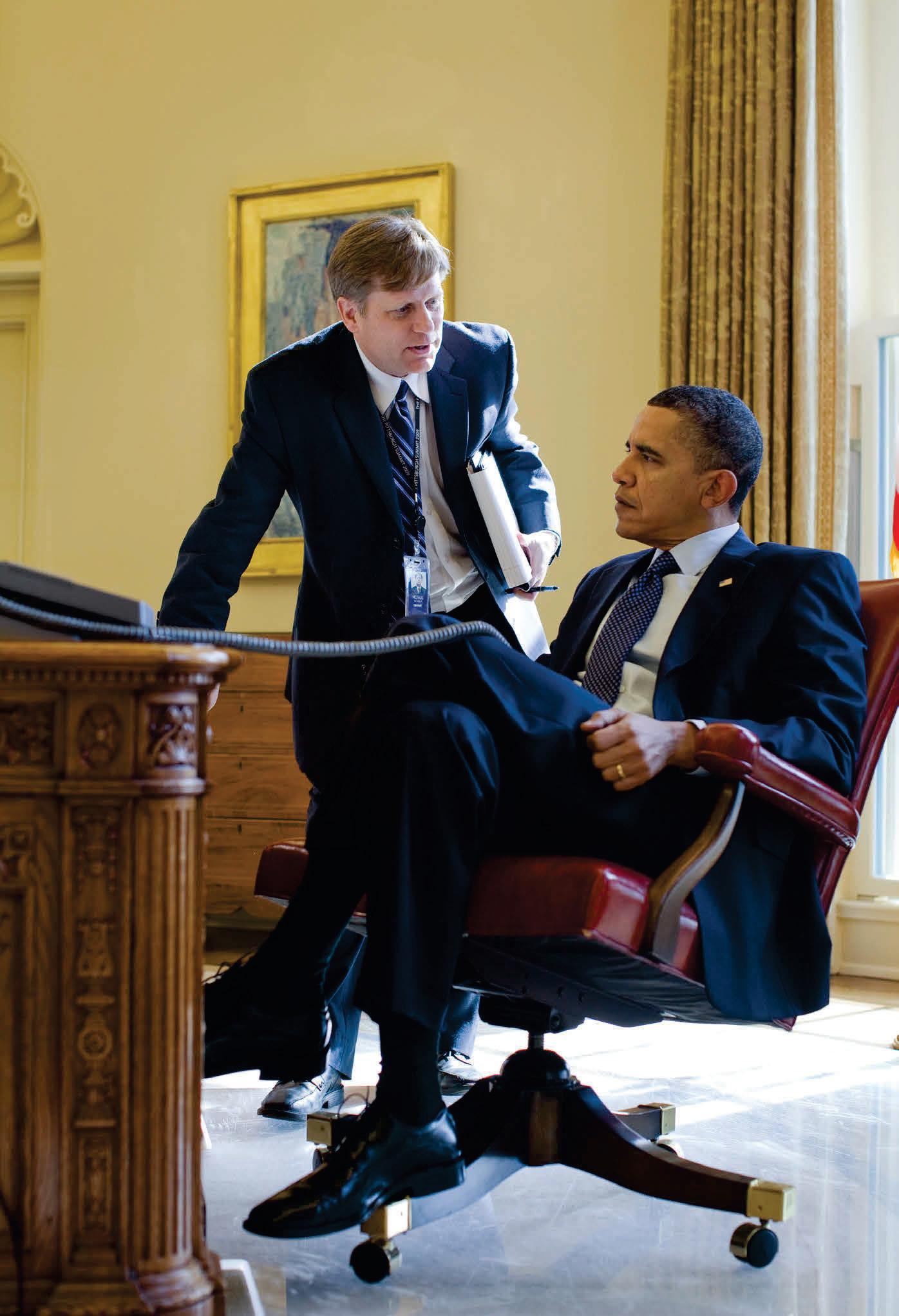Poging GOUD - Vrij
A Nostalgic Read for Foreign Policy Elites
Reason magazine
|January 2026
IF YOU WERE looking for a human avatar of America's unipolar moment, you couldn't do better than Michael McFaul. Picture a youthful, energetic McFaul with a newly minted Ph.D. bounding into the suddenly post-Soviet space of the early 1990s, full of bright ideas about democracy and faith in the end of history. As McFaul himself puts it, 1991 "was a glorious moment to be a democratic, liberal, capitalist, multilateralist, and American....I was treated like a rockstar."

History, however, was undeterred. From his perch in the Democratic Party's foreign policy elite, McFaul had a front-row seat for the twists and turns of U.S. foreign policy. As an adviser on national security to President Barack Obama and later as Obama's ambassador to Russia, he watched the U.S.-Russia relationship worsen; he negotiated Russia's fateful abstention from the United Nations Security Council vote authorizing NATO intervention in Libya. He became an informal advisor to Hillary Clinton's presidential campaign and then a commentator for MSNBC, where he drew connections between resisting President Donald Trump at home and promoting democracy overseas.
McFaul's new book, Autocrats vs. Democrats, highlights the brighter moments of that arc while eliding or dismissing its darker ones. He sings the praises of America's response to the Russian seizure of Crimea and of Obama's attempts to engage overseas democracy movements, but he glosses over the excesses of the unipolar moment. He offers only a few paragraphs on Iraq (while reminding readers that he was not an Iraq war booster). On NATO expansion and its role in today's European tensions, his book is entirely silent.
The book's central, perhaps defining, theme is an unshakeable faith in the righteousness of post-Cold War liberal foreign policy, coupled with an unwillingness to explore the unintended consequences that emerged along the way. McFaul deplores the American public's falling support for liberal international order—or rising “isolationism,” as he sees it—but without dwelling overmuch on why American attitudes shifted so dramatically. Nor does he question whether some of these liberal crusades contributed to the very nationalism and illiberalism that now haunt politics throughout the Western world.
In that respect, this book feels very much as though it were written in 2015, not 2025.
Dit verhaal komt uit de January 2026-editie van Reason magazine.
Abonneer u op Magzter GOLD voor toegang tot duizenden zorgvuldig samengestelde premiumverhalen en meer dan 9000 tijdschriften en kranten.
Bent u al abonnee? Aanmelden
MEER VERHALEN VAN Reason magazine

Reason magazine
Does AI Know How You Will Die?
HOW HIGH IS your risk of developing pancreatic cancer or suffering a heart attack in the next 20 years? A new generative artificial intelligence system called Delphi-2M aims to answer that question and offer personalized forecasts of your long-term health trajectory.
1 mins
February/March 2026
Reason magazine
SOUTH PARK
The animated TV comedy South Park continues to do the impossible: stay punchy and relevant after decades on the air. The latest five-episode season, streaming on Paramount+, once again follows the fourth-graders of South Park Elementary as they navigate a world increasingly obsessed with technology and everything political.
1 min
February/March 2026

Reason magazine
WILL MAMDANI DEFUND THE POLICE?
THE NEW MAYOR IS KEEPING POLICE COMMISSIONER JESSICA TISCH ON THE JOB, BUT THEY MIGHT HAVE A CONTENTIOUS RELATIONSHIP.
3 mins
February/March 2026

Reason magazine
MAMDANI'S EDUCATION AGENDA FOR LESS LEARNING
NEW YORK SCHOOLS NEED MORE CHOICE AND BETTER CURRICULA, BUT THE CITY'S NEW MAYOR WANTS TO TAKE CHOICES AWAY.
8 mins
February/March 2026
Reason magazine
THE TWO FACES OF ZOHRAN MAMDANI
MAMDANI ACTUALLY WANTS MORE HOUSING TO BE BUILT.
3 mins
February/March 2026

Reason magazine
The Long Road Home
The Wounded Generation examines the aftermath of the “good war.”
5 mins
February/March 2026

Reason magazine
How the FCC Became the Speech Police
THE CONSTITUTIONALLY ANOMALOUS STATUS OF BROADCASTING INVITES GOVERNMENT MEDDLING.
21 mins
February/March 2026

Reason magazine
MAMDANI CAN'T RAISE YOUR KIDS
THE MORE THE GOVERNMENT INTERVENES IN THE MARKET, THE MORE NEW YORK PARENTS PAY FOR CHILD CARE.
10 mins
February/March 2026

Reason magazine
Ayn Rand, the Video Game
\"WHAT DOES COMPLETELY, COMPLETELY UNREGULATED COMMERCE LOOK LIKE?\" KEN LEVINE'S BIOSHOCK WILL TELL YOU.
14 mins
February/March 2026
Reason magazine
DEATH BY LIGHTNING
Mike Makowsky opens Death by Lightning, a four-part miniseries he wrote and produced, with a chilling line: “This is a true story about two men the world forgot. One was the 20th president of the United States. The other shot him.” Yet this drama about President James Garfield and assassin Charles Guiteau reminds us that we should wish for more forgettable presidents.
1 min
February/March 2026
Listen
Translate
Change font size
